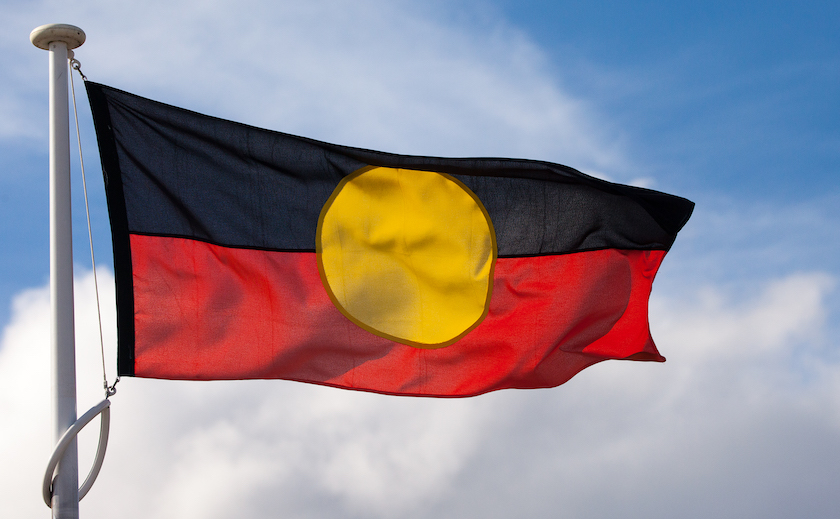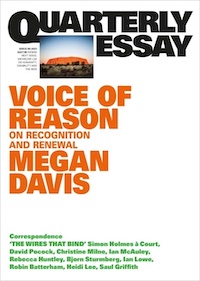The Voice

Linda Burney at the Press Club: “history is calling”
The Voice referendum has arisen because of a carefully-considered request from indigenous Australians to the rest of the community. The government’s role is to respect and respond to that request. It is another step in a long journey to recognition. How much longer do Aboriginal and Torres Strait Islander Australians have to wait?
That’s the introductory message in Indigenous Australians Minister Linda Burney’s Press Club address, where she passionately and clearly reinforces the case for the Voice to be enshrined in the Constitution.
It’s about processes, to allow policymakers to deliver programs with indigenous Australians, rather than the model where policymakers have not had to listen and have made policies for indigenous Australians – policies that often failed and withered. “Policymakers get better outcomes when they listen to First Nations communities”.
And it’s about keeping alive on this land a culture that’s been here for 65 000 years.
Invoking the views of Julian Leeser, Bridget Archer, and Ken Wyatt she reminds us that support reaches across the traditional party lines. (There are many others from the Coalition, including serving members of Parliament and former premiers, whom she could have mentioned.) She notes that the Solicitor General, appointed by the Coalition government, has vouched for the constitutional integrity of the Voice.
But there is a concerted “No” campaign, loosely gathered around a movement known as “Fair Australia”, using Trumpian post-truth politics in a divisive campaign, including the deceptive message that the proposal lacks “details”.
In the Q&A session she refers to Dutton’s “bully boy” tactics. She is disappointed that the media have been slow to call out the “No” campaign’s false claims, and asks of all Australians that we “do not let them divide us”.
Her speech occupies the first 35 minutes. The questions in the following discussion are generally respectful, but many of the journalists are concerned that the “No” campaign, with its simple but false messages has traction, and that it is deliberately opening up divisions.
The “No” campaigners clustered around Dutton and the Murdoch media have been hysterical in response to Burney’s speech. For a while after the election last year, there was hope that the Liberal Party, and perhaps even the National Party, would understand that Australians are yearning for a more civilized form of politics, respectful of truth and reasoning. Instead they have reverted to their established patterns.
A chance to attend to unfinished business
The latest Quarterly Essay – Voice of reason on recognition and renewal – is by constitutional law professor Megan Davis, establishing the case for the Voice.

She covers every aspect of the Voice – why it should be in the Constitution rather than simply legislated, why it should leave detail to Parliament, and why it will be an effective vehicle for just-minded lawmakers to hear the needs and aspirations of indigenous Australians:
The Voice will be a mechanism to demand attention that sits within the structures of the state. It will allow the Indigenous community to flag issues that are important to them; they will have the ability to recommend that a representation is made about the issue by the Voice to government or parliament.
She dismisses the perfidy and misrepresentations of “No” campaigners. As a constitutional lawyer herself she concurs with the expert opinion of Bret Walker, that the Voice will not be jamming the courts with litigation, an idea that is “really too silly for words”.
She also goes into the process by which the proposed amendment was carefully developed, including the consideration of ideas that were abandoned in favour of the Voice. And she explains why the order – Voice, Treaty, Truth – was settled upon.
An extraordinary opportunity
Some of the argument about the Voice is about whether it will deliver practical outcomes for indigenous Australians – health, education, jobs and housing – to quote the issues to which Linda Burney would like to see the Voice turn its attention.
These are important, and there are sound reasons why a Voice to the Commonwealth Government is the most effective way to address these needs as Burney, Davis and many others explain.
Cate Blanchett points out on the 730 program that the Voice is about far more:
We have this incredible opportunity to embrace our unique history, shared history, you know, with all of its missteps and all of its successes, to actually evolve into a really modern democracy, like New Zealand, like Canada.
The context is a discussion about the movie The New Boy, directed by Warwick Thornton and in which Thornton is a leading actor, which relates to many issues about the meeting of aboriginal and the later cultures that have shaped Australia.